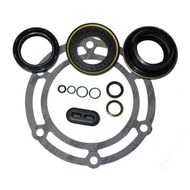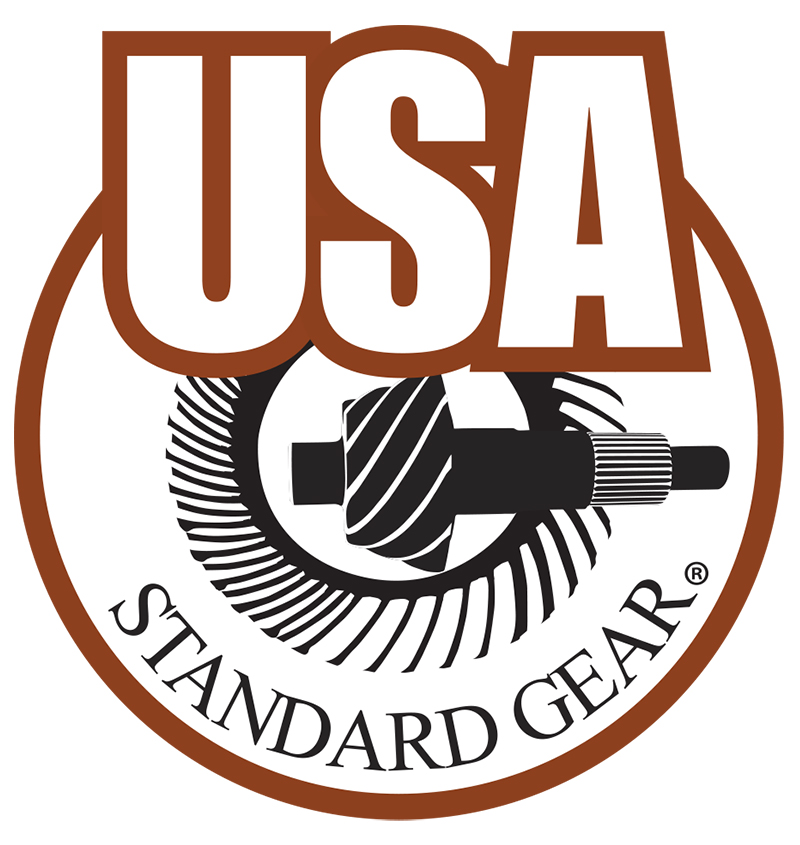



Finish your transfer case rebuild right. Kit includes transfer case input seal, rear seal, front output seal, shift shaft seal, oil pickup tube o-ring, tailhousing plug, and appropriate o-rings and gaskets.
Warranty information unavailable
The ID tag location varies by manufacturer.
New Venture – Round tag on the back of the unit.
Borg Warner – Tin tag located on the case half bolts.
Magna – Sticker that can be found in a few different locations on unit.
Transfer cases use a combination of Drive, Housing, and Shift Types.
Drive types:
Gear driven transfer cases use a set of gears to send power to the front and rear axle. While gear driven transfer cases are more durable, they are also louder and less practical for smaller vehicles because of their weight.
Chain driven transfer cases use a chain in place of a gear set. Though most chain driven cases only drive one axle, there are case systems designed to drive both axles with a chain. Chains are lighter and quieter, but weaker than gear sets.
Housing types:
Married transfer case housings are bolted to the transmission, often between the output shaft and the main driveshaft. Some married transfer cases share their housing with the transmission.
Independent housings are installed separately from the transmission casing and are connected to the transmission output shaft with another driveshaft.
Shift types:
Manual Shift On-the-Fly (MSOF) transfer cases are controlled with a lever on the driver’s side floor of most vehicles. These transfer cases have two automatic sealed front axle hubs or two manual front axle hub selectors. High 4WD settings can be engaged at low speeds, but low 4WD settings must be engaged when the vehicle is stationary and the transmission is in neutral.
Electronic Shift On-the-Fly (ESOF) transfer cases have a dash-mounted selector, usually a switch or set of buttons. These cases have sealed automatic locking front axle hubs and a transfer case motor. High and low 4WD is engaged in the same ways as a MSOF transfer case.

